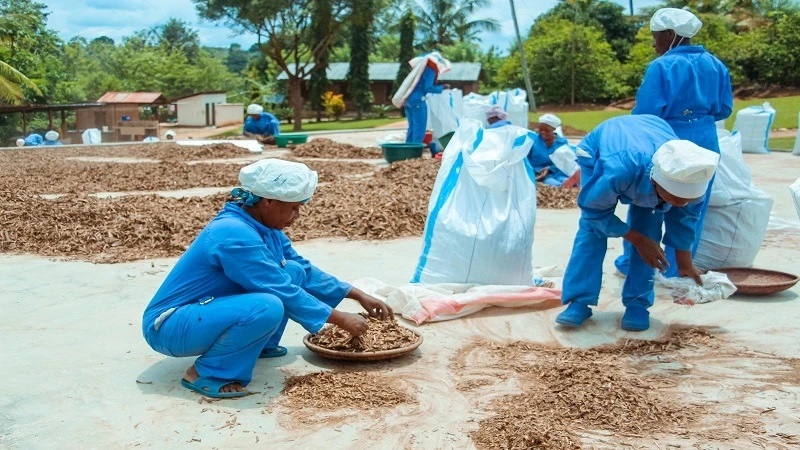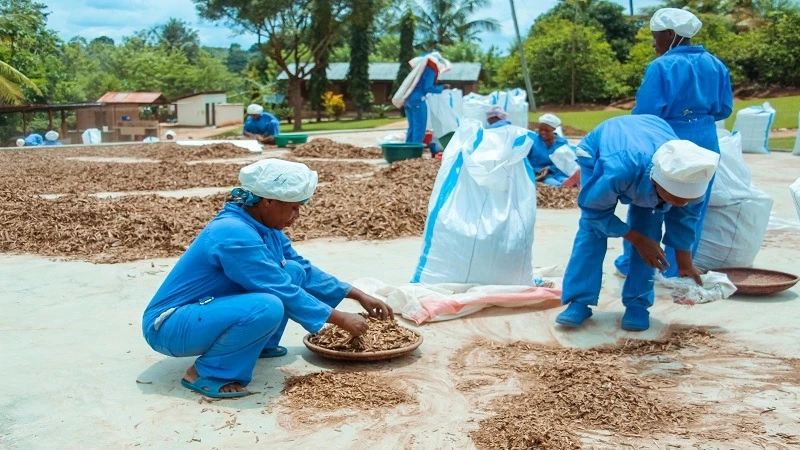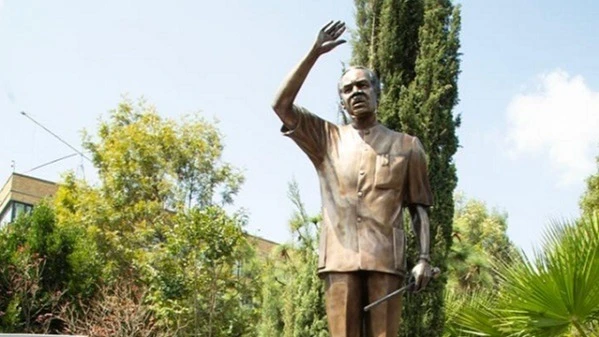Climate change threatens cardamom farming in Muheza as farmers adopt organic practices

CLIMATE change has been significantly affecting the country’s agricultural sector. In Amani Division, Muheza District, Tanga Region, spice farmers, particularly those growing cardamom, are now witnessing the impacts of climate change following declining yields of the commercial crop.
Farmers in Amani Division in Usambara Mountains which are part of the Eastern Arc Mountains have for years experienced changes in rainfall patterns—either prolonged droughts or intense rainfalls.
The Eastern Arc is renowned for its biodiversity, hosting a variety of unique plant and animal species. These mountains are important for water catchment and agriculture.
Cardamom requires consistent rainfall and high humidity, droughts limit water availability for the crops, while heavy rains can lead to flooding and soil erosion, which damage the plants and reduce productivity.
Magreth David, Operation Manager, GFP Organics Limited said with the support from the USAID Tuhifadhi Maliasili project they are promoting organic farming practices amongst spice farmers.
Farmers are encouraged to adopt organic farming methods, which are more sustainable and environmentally friendly to be able to produce high-quality organic spices while protecting the environment, such as the forests and water catchment areas.
“Following climate change challenges; we promote practices that increase the resilience of crops, such as agroforestry and planting of shade trees that protect sensitive crops like cardamom,” said David, adding that is why the company is working with the USAID Tuhifadhi Maliasili project, as they were looking for people who are conserving the environment in the Amani-Nilo Corridor which connects Amani Nature Reserve and Nilo Nature Reserve.
The Amani-Nilo Corridor is a habitat for many endangered and endemic species of plants, birds, and animals.
In the Amani-Nilo Corridor, GFP Organics Limited works with farmers from villages namely; Antakae, Kwezitu, Zirai, Kizerui, Kazita, Msasa IBC, Magoda, Shamsangeda, Kwamhosi, Bombani, Tongwe, Mashewa, Mangubu, Magoroto na Kawaisaka.
To address impacts of climate change, David said they are educating farmers on how to make terrace bunds and ditches, and to plant environmentally friendly trees.
She added that climate change has affected cardamom yields whereas farmers cannot meet the market demand. She said the heavy rains and floods in 2018 resulted in soil erosion as most of the farms are on mountains, causing all the topsoil, which contains essential nutrients for crops to be washed away by water.
“After all these efforts we are seeing some improvements compared to 2022 and 2023,” she told The Guardian.
One of the spice farmers at Kwezitu village, Wallace Kimweri said the rainfall they are currently receiving is low compared to previous years.
"We are also grateful to GFP Organics Limited for the training they provide to us so that we can tackle climate change. We have been trained on areas environmental and forest management as well as terracing to control soil erosion,"
Chairman of Kazita village, in Msarai ward, William Hiza said in the 1960s the village was almost covered by forests with the presence of wild animals such as lions, leopards and elephants.
Hiza said they used to cultivate crops three times a year because there was enough rain, noting, the situation has now changed as most villagers cultivate crops once or twice a year.
He added that back then, they used to grow crops without applying fertilizer, which is not the case now, as they are forced to use fertilizers to get more yields.
"Climate change has greatly affected us. There was negligence in the past as people were left to cut trees for logging business. This has significantly contributed to environmental and forest degradation, resulting in disappearance of wild animals. We are now receiving average rains compared to the past."
"We are grateful for the efforts by stakeholders including the USAID Tuhifadhi Maliasili project in promoting tree planting and environmental conservation. Nowadays, many people in the village are educated, even schoolchildren understand the importance of protecting forests. Villagers monitor each other, and if someone is seen cutting trees, a report is quickly made to our office and actions are taken,” said Hiza.
Nyenza Adam, the Acting Muheza District Agricultural Officer, said climate change has greatly impacted cardamom farming in the Amani Division.
Cardamom requires fertile soil and favourable conditions to thrive. In recognition of this, we are teaching farmers how to practice organic farming and avoid the use of chemicals such as pesticides.
Warmer conditions stress the plants, reducing yields and leading to poor quality of cardamom pods. This can also encourage the growth of pests and diseases, which further harm the crop.
Climate change can easily facilitate the spread of pests and diseases that attack cardamom plants. Warmer, more humid conditions promote the proliferation of fungal infections and insect pests, thus affecting both yields and quality.
Top Headlines
© 2024 IPPMEDIA.COM. ALL RIGHTS RESERVED

























